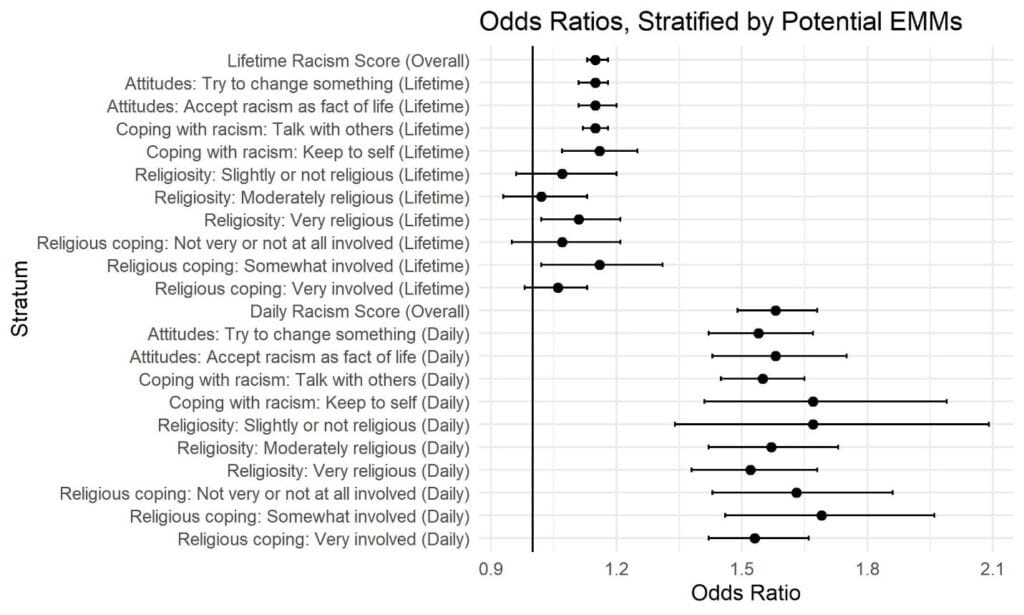Mental Health
Perceived racism and depression in a cohort of middle-aged US Black women: the role of potential modifiers Virginia Cafferky* Yvette Cozier Virginia Cafferky Jeanine Nasser Jaimie Gradus
Exposure to racism is linked to poor mental health outcomes, but the role of hypothesized social and interpersonal modifiers (e.g., religious coping) among Black women remain poorly understood. The Black Women’s Health Study (BWHS) is a prospective cohort of US Black women followed biennially beginning in 1995 when they were 21-69 years of age. Our analytic sample consisted of 20,333 women with no history of depression, who completed both the 2009 and 2019 BWHS follow-up questionnaires. Exposure to racism (assessed in 2009) was defined as how often participants experienced various types of daily discrimination (e.g., people act as if you are dishonest), as well as specific kinds of institutional racism (e.g., healthcare settings). Depression (assessed in 2019) was defined as scoring ≥ 16 on the Center for Epidemiologic Studies Depression (CES-D) scale or reporting diagnosed depression with medication use. Logistic regression models adjusted for age, education, and socioeconomic status. Stratified analyses assessed effect measure modification by self-reported coping strategies. High levels of daily and lifetime racism were associated with increased odds of depression: OR=1.6; 95% CI 1.5, 1.7 and OR=1.2; 95% CI 1.1, 1.2, respectively. Coping strategies provided little EMM. The effect of daily racism was slightly stronger among those keeping experiences to themselves (OR=1.7; 95% CI 1.4, 2.0) than those who cope by talking to others (OR=1.6; 95% CI 1.5, 1.7). High levels of religious coping weakly buffered the effect of daily racism (OR=1.5; 95% CI 1.4, 1.7) compared to moderate (OR=1.7; 95% CI 1.5, 2.0) and low levels (OR=1.6; 95% CI 1.4, -1.9). Our findings suggest that frequent exposure to racism is associated with increased odds of depression, with little EMM by hypothesized buffers. Future work is needed to better understand the impact of discrimination, and the role of social and interpersonal factors, on Black women’s mental health.

